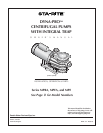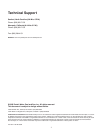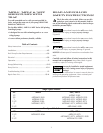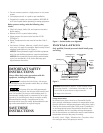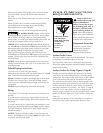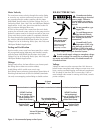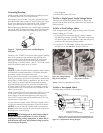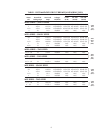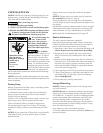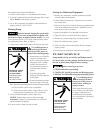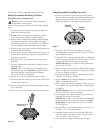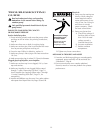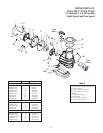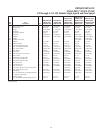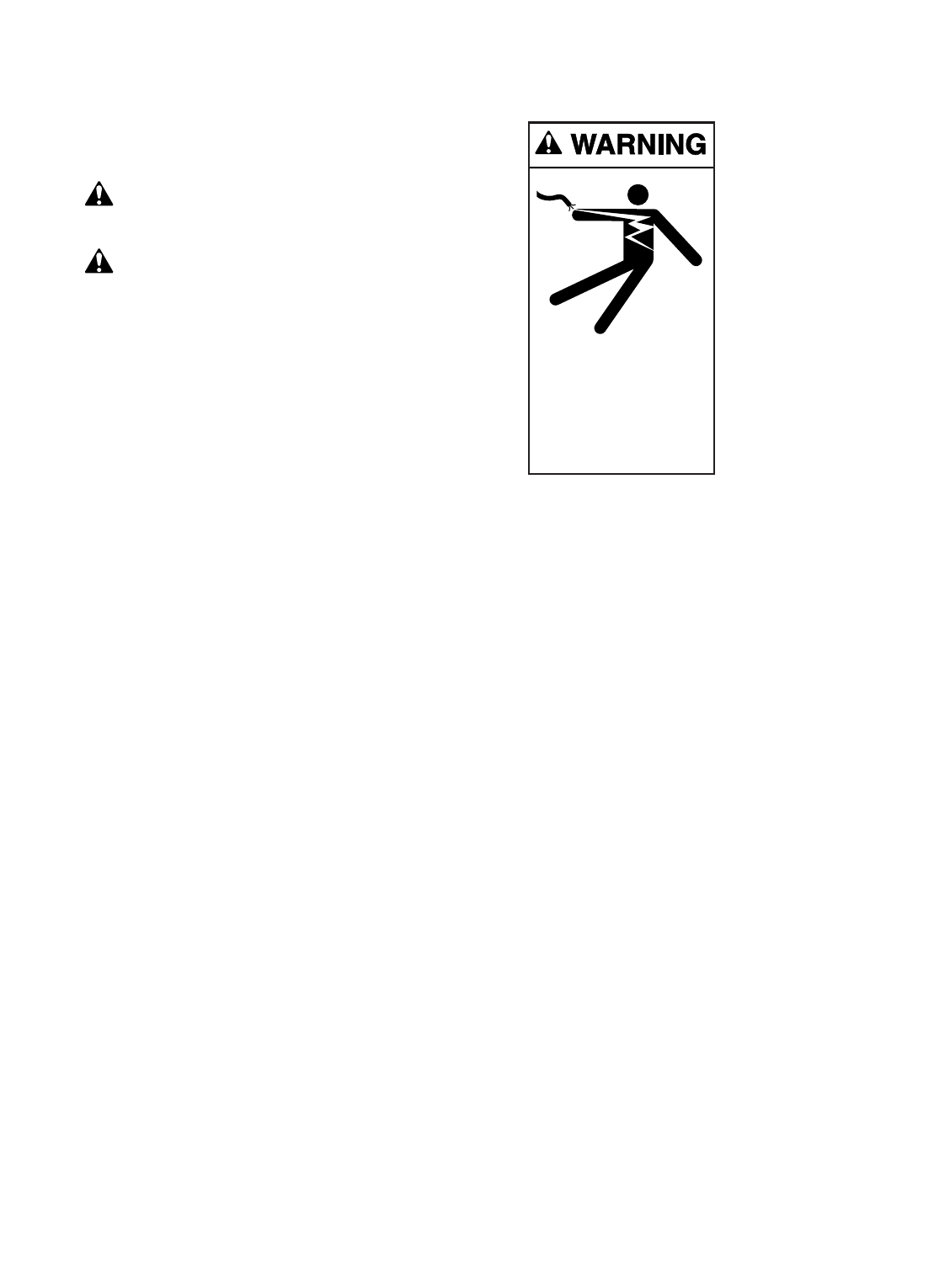
12
TROUBLESHOOTING
GUIDE
Read and understand safety and operating
instructions in this manual before doing any
work on pump!
Only qualified personnel should electrically test
pump motor!
FAILURE TO PUMP; REDUCED CAPACITY
OR DISCHARGE PRESSURE
Suction leaks/lost prime:
1. Pump must be primed; make sure that pump volute
and trap are full of water. See priming instructions,
Page 9.
2. Make sure there are no leaks in suction piping.
3. Make sure suction pipe inlet is well below the water
level to prevent pump from sucking air.
4. If suction trap O-Ring is defective, replace it.
5. Make sure pump is not trying to lift water more than
10' (3m).
6. Make sure suction pipe is at least 2" (51mm) in diameter.
Clogged pipe/trap/impeller, worn impeller:
7. Make sure suction trap is not clogged; if it is, clean
trap and strainer.
8. Make sure impeller is not clogged (follow steps 1
through 7 under “Removing Old Seal”, Page 11;
check impeller for clogging; follow steps 7 through
11 under “Installing New Seal”, Page 11, for
reassembly).
9. Impeller and diffuser may be worn. If so, order replace-
ment parts from Repair Parts List, Pages 13 and 14.
Electrical:
10. Pump may be running too
slowly; check voltage at
motor terminals and at
meter while pump is run-
ning. If low, see wiring in-
structions or consult
power company. Check
for loose connections.
11. Pump may be too hot.
A. Check line voltage; if
less than 90% or more
than 110% of rated
voltage consult a
licensed electrician.
B. Increase ventilation.
C. Reduce ambient
temperature.
D.Tighten any loose connections.
MECHANICAL TROUBLES AND NOISE
1. If suction and discharge piping are not adequately
supported, pump assembly will be strained. See
“Installation”, Page 4.
2. Do not mount pump on a wooden platform!
Securely mount on concrete platform for quietest
performance.
Hazardous voltage.
Can shock, burn,
or cause death.
Disconnect power
before working
on pump or motor.



